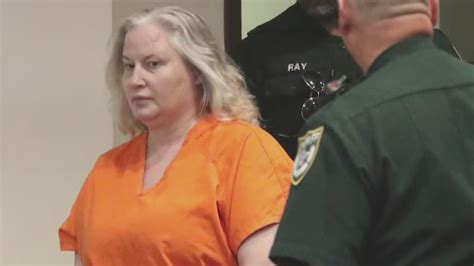
Rumors of a DNA test confirming Princess Beatrice is not King Charles III’s biological daughter are false and without merit, debunking claims of a royal rift. The widely circulated narrative, amplified through social media and dubious websites, lacks any factual basis, according to a fact-check by Reuters. The claims allege that a DNA test supposedly conducted by the royal family revealed that Prince Andrew, not King Charles, is Princess Beatrice’s father, insinuating a significant scandal and potential upheaval within the British monarchy. However, Buckingham Palace has not issued any statements regarding such a test, and there is no credible evidence to support these allegations.
The origin of these rumors appears to stem from various online platforms known for spreading misinformation and conspiracy theories. These platforms often capitalize on the public’s fascination with the royal family and their personal lives, fabricating sensational stories that attract attention and engagement. The Princess Beatrice DNA test narrative is a prime example of such fabrication, exploiting existing interest and speculation surrounding royal lineage to generate unfounded controversy.
The false claims gained traction through reposts and shares on social media networks, particularly platforms like X (formerly Twitter), Facebook, and TikTok. The viral nature of these platforms allowed the rumors to spread rapidly, reaching a wide audience and further cementing the false narrative in the minds of some individuals. The lack of critical evaluation and fact-checking by many social media users contributed significantly to the propagation of the misinformation.
The absence of any reliable sources reporting on this alleged DNA test is a crucial indicator of its falsehood. Reputable news organizations adhere to strict journalistic standards, requiring verifiable evidence and confirmation from credible sources before publishing sensitive information, especially concerning high-profile figures like members of the royal family. The fact that no mainstream media outlet has reported on this story strongly suggests that the claims are unsubstantiated and fabricated.
Reuters has officially debunked the claims, stating that the assertion Princess Beatrice underwent a DNA test is false. This authoritative fact-check serves as a definitive refutation of the rumors, providing clear evidence that the narrative is baseless. Fact-checking organizations like Reuters play a vital role in combating misinformation and ensuring that the public has access to accurate information. Their work helps to prevent the spread of false narratives and promotes informed decision-making.
The emergence and spread of these false rumors underscore the challenges of navigating the digital age, where misinformation can proliferate rapidly and unchecked. The ease with which fabricated stories can be disseminated online highlights the importance of media literacy and critical thinking skills. Individuals must be vigilant in evaluating the information they encounter online, verifying sources, and seeking out credible fact-checks before accepting claims as true.
The royal family has often been the target of false and sensational claims, reflecting the intense public interest in their lives. These rumors can have a detrimental impact, causing unnecessary stress and anxiety for the individuals involved and potentially damaging the reputation of the monarchy. It is therefore crucial to address these claims promptly and decisively, providing accurate information and debunking false narratives.
The Princess Beatrice DNA test rumors serve as a reminder of the need for responsible social media usage and the importance of relying on credible sources of information. By exercising critical thinking and verifying claims before sharing them, individuals can help to prevent the spread of misinformation and promote a more informed and accurate understanding of current events. The debunking of this particular rumor reinforces the value of fact-checking and the importance of maintaining journalistic integrity in the digital age.
Additional Details and Context:
To further understand the implications of the Princess Beatrice DNA test rumor, it’s essential to delve deeper into the context surrounding royal lineage, media consumption, and the role of fact-checking in contemporary society.
Royal Lineage and Public Fascination:
The British monarchy holds a unique position in the global consciousness. Steeped in history and tradition, the royal family is a constant subject of fascination for people worldwide. This interest extends to their personal lives, relationships, and, notably, their lineage. Questions of succession and parentage have played pivotal roles in shaping the history of the monarchy, making them fertile ground for speculation and intrigue.
The public’s fascination with royal lineage is not merely idle curiosity. It stems from the constitutional importance of the monarchy and the role it plays in national identity. The line of succession determines who will inherit the throne, a position that carries significant symbolic and constitutional power. Therefore, any suggestion of uncertainty or irregularity in royal parentage can generate considerable interest and concern.
The media landscape has further amplified this fascination. From traditional news outlets to tabloid publications and social media platforms, the royal family is constantly under scrutiny. This intense media attention creates an environment where rumors and speculation can easily take root and spread rapidly.
The Spread of Misinformation in the Digital Age:
The internet and social media have revolutionized the way information is disseminated. While these technologies offer numerous benefits, they have also created new challenges, particularly in the form of misinformation. False or misleading information can spread quickly and widely online, often reaching a vast audience before it can be effectively debunked.
The ease with which misinformation can be created and shared is a significant concern. Anyone with an internet connection can publish content online, regardless of its accuracy or veracity. This lack of editorial oversight allows false narratives to proliferate unchecked, making it increasingly difficult for individuals to distinguish between credible and unreliable sources.
Social media platforms play a particularly important role in the spread of misinformation. The algorithms that govern these platforms are designed to maximize engagement, often prioritizing content that is sensational or emotionally charged. This can inadvertently amplify false narratives, as they tend to generate more clicks, shares, and comments than factual information.
The Princess Beatrice DNA test rumor is a prime example of how misinformation can spread in the digital age. The false claims originated on online platforms known for spreading conspiracy theories and quickly gained traction on social media. The lack of critical evaluation by many users allowed the rumors to spread rapidly, reaching a wide audience and further cementing the false narrative in the minds of some individuals.
The Role of Fact-Checking:
In the face of widespread misinformation, fact-checking organizations play a crucial role in promoting accuracy and combating false narratives. These organizations employ trained journalists and researchers who meticulously investigate claims, verify sources, and provide clear evidence to support or refute them.
Fact-checking organizations adhere to strict standards of impartiality and transparency. They disclose their funding sources, methodologies, and editorial policies, ensuring that their work is credible and trustworthy. They also provide detailed explanations of their fact-checking processes, allowing readers to understand how they arrived at their conclusions.
Reuters’ fact-check of the Princess Beatrice DNA test rumor is a prime example of the important work that these organizations do. By thoroughly investigating the claims and providing clear evidence that they are false, Reuters helped to debunk the rumor and prevent it from spreading further.
Fact-checking organizations are not always successful in preventing the spread of misinformation. False narratives can be difficult to dislodge once they have taken root, and many individuals are resistant to changing their beliefs, even in the face of contrary evidence. However, fact-checking plays a vital role in promoting informed decision-making and ensuring that the public has access to accurate information.
The Impact on the Royal Family:
The constant barrage of rumors and speculation can have a significant impact on the royal family. These individuals are constantly under scrutiny, and their lives are often subject to intense media attention. This can create a stressful and challenging environment, particularly when false or malicious claims are made.
The Princess Beatrice DNA test rumor is just one example of the many false claims that have been made about the royal family. These claims can be hurtful and damaging, both to the individuals involved and to the reputation of the monarchy.
The royal family has generally adopted a policy of not commenting on rumors and speculation. However, in some cases, they have been forced to issue statements to correct false information or address serious allegations. This is a delicate balancing act, as responding to every rumor can lend it undue credibility.
The Importance of Media Literacy:
The Princess Beatrice DNA test rumor underscores the importance of media literacy in the digital age. Media literacy is the ability to access, analyze, evaluate, and create media in a variety of forms. It involves understanding how media messages are constructed, how they can be used to influence opinions, and how to critically evaluate the information we encounter online.
Developing media literacy skills is essential for navigating the complex media landscape of the 21st century. It allows individuals to make informed decisions about the information they consume and share, and to avoid being misled by false or misleading narratives.
There are many resources available to help individuals develop their media literacy skills. These include educational programs, online tutorials, and fact-checking websites. By investing in media literacy education, we can empower individuals to become more informed and discerning consumers of information.
Conclusion:
The Princess Beatrice DNA test rumor is a false and baseless claim that highlights the challenges of navigating the digital age. The rapid spread of misinformation online underscores the importance of media literacy, critical thinking, and fact-checking. By exercising vigilance and relying on credible sources of information, individuals can help to prevent the spread of false narratives and promote a more informed and accurate understanding of current events. The debunking of this particular rumor reinforces the value of fact-checking and the importance of maintaining journalistic integrity in the digital age. The public fascination with the Royal Family makes them particularly vulnerable to these sorts of rumors, making critical evaluation even more paramount.
Frequently Asked Questions (FAQ):
1. Is there any truth to the rumors that Princess Beatrice took a DNA test to determine her parentage?
No. According to Reuters, a fact-checking organization, the claim that Princess Beatrice underwent a DNA test is false. There is no credible evidence to support this rumor, and Buckingham Palace has not issued any statements regarding such a test.
2. Where did these rumors originate?
The rumors appear to have originated on various online platforms known for spreading misinformation and conspiracy theories. These platforms often capitalize on the public’s fascination with the royal family and their personal lives, fabricating sensational stories that attract attention and engagement.
3. How did these rumors spread?
The rumors spread rapidly through social media networks, including X (formerly Twitter), Facebook, and TikTok. The viral nature of these platforms allowed the false narrative to reach a wide audience, and the lack of critical evaluation by many users contributed to its propagation.
4. Why haven’t reputable news organizations reported on this alleged DNA test?
Reputable news organizations adhere to strict journalistic standards, requiring verifiable evidence and confirmation from credible sources before publishing sensitive information. The fact that no mainstream media outlet has reported on this story strongly suggests that the claims are unsubstantiated and fabricated.
5. What can I do to avoid being misled by false information online?
You can develop media literacy skills by learning to access, analyze, evaluate, and create media in a variety of forms. Be vigilant in evaluating the information you encounter online, verify sources, and seek out credible fact-checks before accepting claims as true. Be especially wary of sensational or emotionally charged content, as this is often a sign of misinformation.
Expanding on Royal Lineage Context:
Royal lineage is a complex tapestry woven with historical, political, and social threads. In the context of the British monarchy, it determines not only who inherits the throne but also carries significant implications for national identity and constitutional stability. The rules governing succession have evolved over centuries, often reflecting the prevailing social and political norms of the time. Originally based on primogeniture (inheritance by the eldest son), the rules have been modified to address issues such as gender equality and religious affiliation. The Act of Settlement 1701, for example, excluded Catholics from the line of succession, a provision that remains in effect today.
Any perceived deviation from the established line of succession, or any question mark over the parentage of a potential heir, can therefore trigger significant anxiety and speculation. Throughout history, rumors and challenges to royal lineage have been used as tools for political maneuvering and social disruption. The “Princes in the Tower” episode, where the young King Edward V and his brother disappeared under mysterious circumstances, remains a potent reminder of the dangers associated with uncertainty surrounding royal succession.
In modern times, the scrutiny of royal lineage has intensified due to the pervasive reach of the media. The public’s insatiable appetite for royal news, coupled with the proliferation of online platforms, has created an environment where rumors and speculation can thrive. While legitimate news outlets typically adhere to strict standards of accuracy and verification, many online platforms operate with little or no editorial oversight, allowing false narratives to spread unchecked.
The Princess Beatrice DNA test rumor taps into this existing fascination with royal lineage and exploits the public’s susceptibility to sensational stories. By suggesting that a DNA test has revealed a secret about Princess Beatrice’s parentage, the rumor-mongers aim to generate controversy and sow discord. The fact that the rumor is completely unfounded only serves to highlight the recklessness and irresponsibility of those who perpetuate such false narratives.
Detailed Analysis of Media Consumption and Social Media’s Role:
The way people consume media has undergone a radical transformation in recent decades. Traditional media outlets, such as newspapers, television, and radio, still play a role in shaping public opinion, but their influence has been diminished by the rise of the internet and social media. Social media platforms, such as Facebook, Twitter, Instagram, and TikTok, have become primary sources of news and information for many people, particularly younger generations.
This shift in media consumption patterns has profound implications for the spread of misinformation. Traditional media outlets typically employ journalists and editors who are trained to verify information and adhere to ethical standards. Social media platforms, on the other hand, operate as open forums where anyone can publish content, regardless of its accuracy or veracity. This lack of editorial oversight makes social media a fertile ground for the spread of false narratives.
Furthermore, the algorithms that govern social media platforms often prioritize engagement over accuracy. Content that is sensational, controversial, or emotionally charged tends to generate more clicks, shares, and comments, and is therefore more likely to be amplified by the algorithms. This can create a “filter bubble” effect, where users are only exposed to information that confirms their existing beliefs, making them more susceptible to misinformation.
The Princess Beatrice DNA test rumor is a textbook example of how social media can be used to spread false narratives. The rumor originated on online platforms known for spreading conspiracy theories and quickly gained traction on social media. Many users shared the rumor without critically evaluating its source or veracity, contributing to its rapid spread. The lack of critical thinking and media literacy skills among some social media users made them easy targets for misinformation.
In-depth Exploration of Fact-Checking Organizations and Their Methodologies:
Fact-checking organizations play a critical role in combating misinformation and promoting accuracy in the media. These organizations employ trained journalists and researchers who meticulously investigate claims, verify sources, and provide clear evidence to support or refute them. They adhere to strict standards of impartiality and transparency, and their work is essential for helping the public distinguish between credible and unreliable information.
Fact-checking organizations typically follow a rigorous methodology when investigating claims. First, they identify a claim that is circulating widely and has the potential to mislead the public. Second, they gather all available evidence related to the claim, including news articles, government reports, academic studies, and statements from experts. Third, they evaluate the credibility of the sources, taking into account factors such as bias, reputation, and track record. Fourth, they synthesize the evidence and draw a conclusion about the accuracy of the claim. Fifth, they publish their findings in a clear and accessible format, providing detailed explanations of their methodology and sources.
Reuters, the organization that debunked the Princess Beatrice DNA test rumor, is a leading international news agency known for its commitment to accuracy and impartiality. Reuters employs a team of experienced fact-checkers who specialize in investigating claims circulating online. Their fact-checks are widely respected and are often cited by other news organizations and social media platforms.
Fact-checking organizations face numerous challenges in their efforts to combat misinformation. False narratives can be difficult to dislodge once they have taken root, and many individuals are resistant to changing their beliefs, even in the face of contrary evidence. Furthermore, fact-checking organizations often lack the resources to investigate every claim that is circulating online, and they must prioritize their efforts based on the potential impact of the misinformation.
Despite these challenges, fact-checking organizations play a vital role in promoting informed decision-making and protecting the public from false narratives. Their work is essential for maintaining a healthy and functioning democracy.
Elaborating on the Psychological Impact on the Royal Family and Individuals:
The constant media scrutiny and the relentless stream of rumors and speculation can take a significant toll on the mental health and well-being of the royal family. Members of the royal family are constantly in the public eye, and their every move is scrutinized and analyzed. This can create a tremendous amount of pressure and anxiety.
Furthermore, the constant exposure to false and malicious rumors can be deeply hurtful and damaging. Members of the royal family are often portrayed in a negative light, and their personal lives are often invaded and misrepresented. This can lead to feelings of isolation, anger, and depression.
The Princess Beatrice DNA test rumor is just one example of the many false claims that have been made about the royal family. These claims can have a devastating impact, not only on the individuals involved but also on their families and friends. The stress and anxiety associated with constant media scrutiny can lead to burnout, exhaustion, and even mental health problems.
Beyond the royal family, the spread of misinformation can also have a negative impact on individuals who are exposed to it. False narratives can distort people’s perceptions of reality, leading to confusion, distrust, and even radicalization. The Princess Beatrice DNA test rumor, while seemingly harmless, can contribute to a climate of distrust and cynicism, making it more difficult for people to engage in informed and rational debate.
Comprehensive Discussion on Enhancing Media Literacy and Critical Thinking:
Media literacy and critical thinking skills are essential for navigating the complex and ever-changing media landscape of the 21st century. These skills enable individuals to access, analyze, evaluate, and create media in a responsible and informed manner. They empower people to distinguish between credible and unreliable information, to identify bias and propaganda, and to make informed decisions about the information they consume and share.
Media literacy encompasses a wide range of skills, including:
- Accessing media: Knowing how to find and use different types of media, including print, broadcast, and online sources.
- Analyzing media: Understanding how media messages are constructed, including the use of language, images, and sound.
- Evaluating media: Assessing the credibility and reliability of media sources, taking into account factors such as bias, reputation, and track record.
- Creating media: Producing media messages in a responsible and ethical manner, adhering to standards of accuracy and fairness.
Critical thinking involves the ability to analyze information objectively and make reasoned judgments. It requires individuals to question assumptions, to identify biases, and to evaluate evidence before drawing conclusions. Critical thinking skills are essential for navigating the complex and often contradictory information that is presented in the media.
There are many ways to enhance media literacy and critical thinking skills. Schools and universities can incorporate media literacy education into their curricula. Libraries and community centers can offer workshops and programs on media literacy. Individuals can also take steps to improve their own media literacy skills by seeking out credible sources of information, by questioning the information they encounter, and by engaging in discussions with others about media issues.
The Princess Beatrice DNA test rumor serves as a stark reminder of the importance of media literacy and critical thinking. By developing these skills, individuals can protect themselves from misinformation and contribute to a more informed and democratic society.
In conclusion, the Princess Beatrice DNA test rumor is a prime example of how misinformation can spread rapidly in the digital age. By understanding the context surrounding royal lineage, media consumption, and the role of fact-checking, and by developing media literacy and critical thinking skills, individuals can help to prevent the spread of false narratives and promote a more informed and accurate understanding of current events. This entire episode underscores the importance of continuous vigilance and the need to rely on credible sources of information in an increasingly complex and interconnected world. The impact of misinformation on public trust and social cohesion should not be underestimated. Therefore, proactive efforts to combat misinformation and promote media literacy are essential for maintaining a healthy and functioning society.









